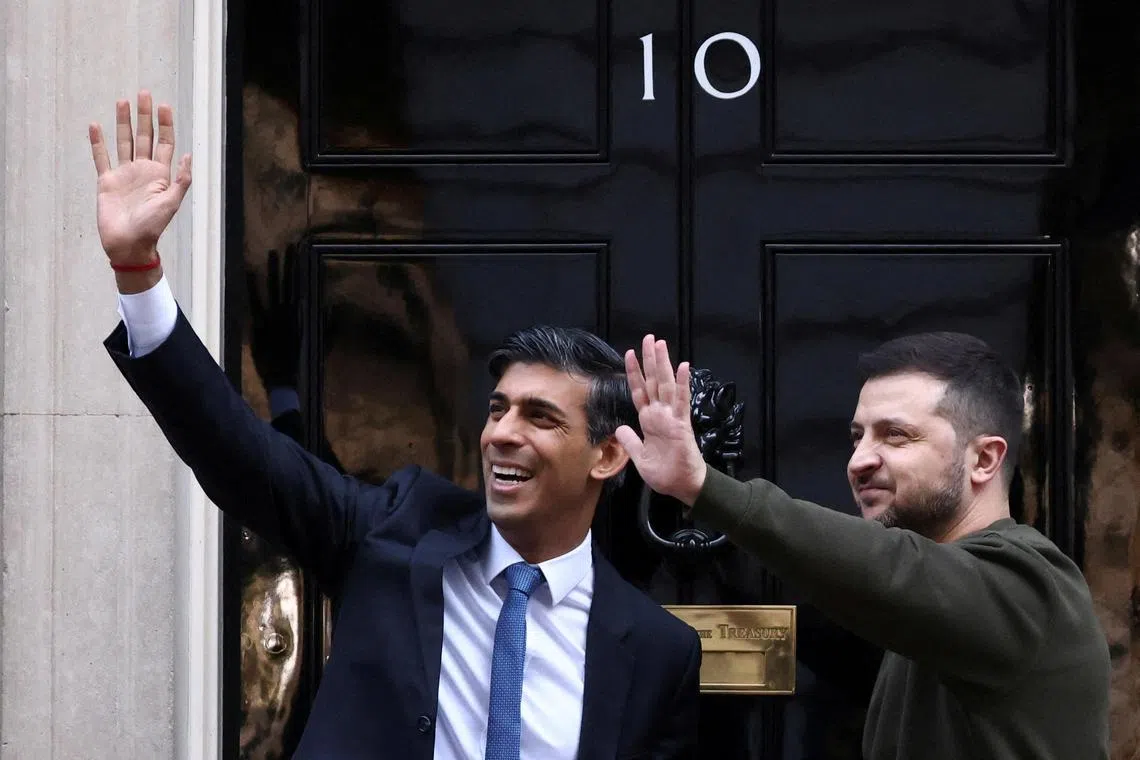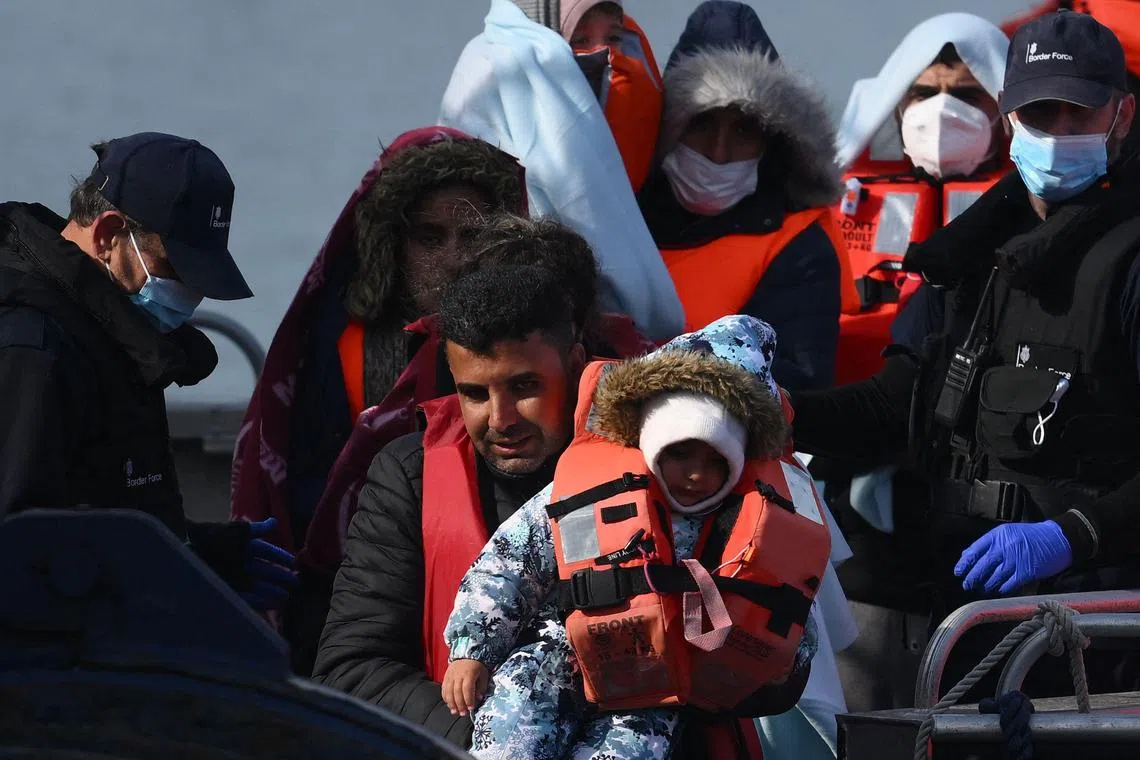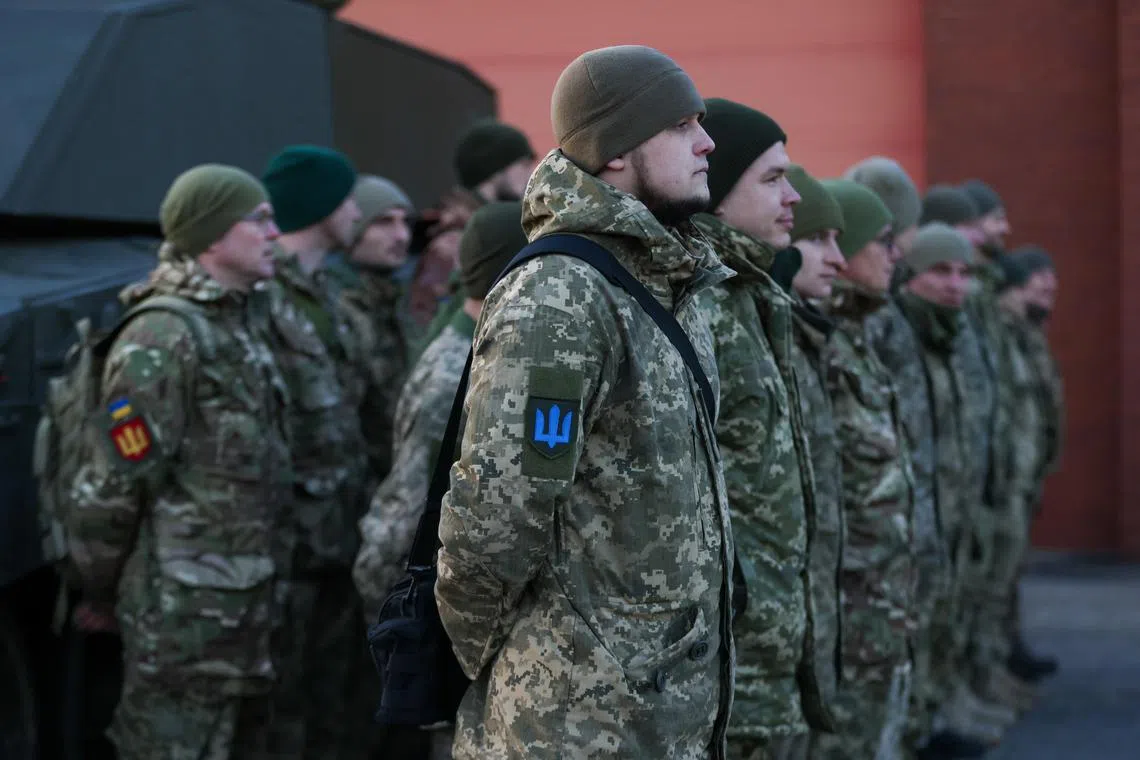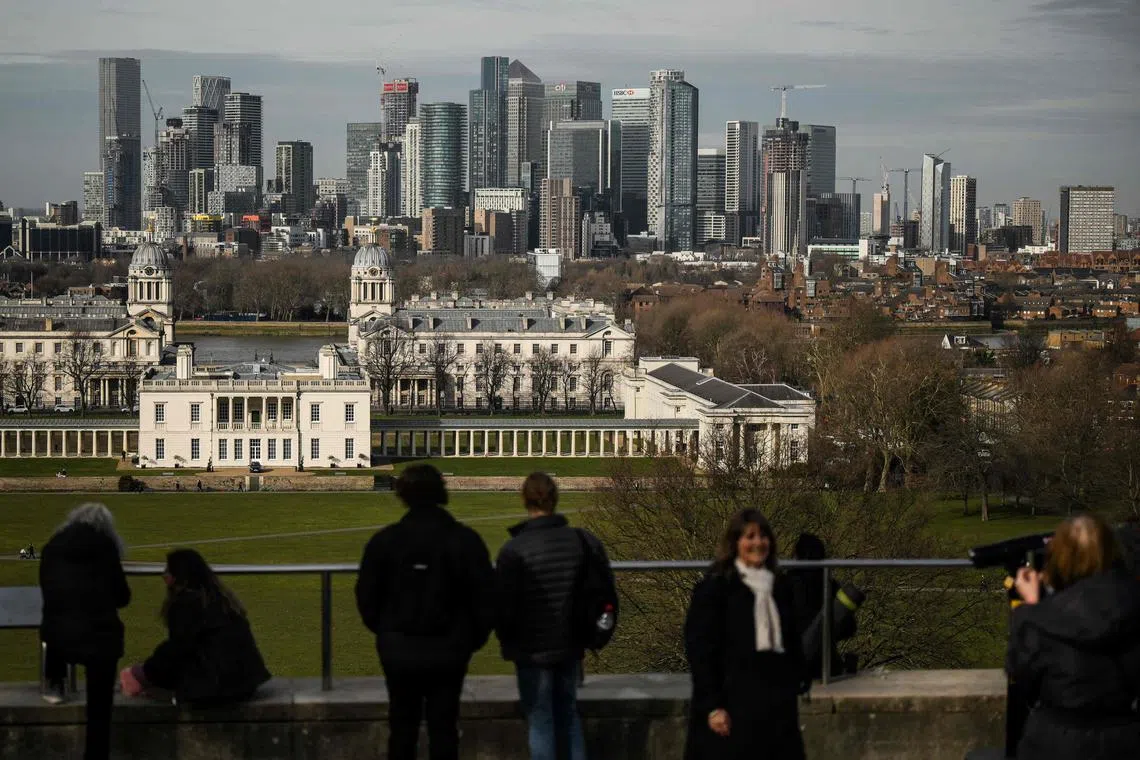Rishi Sunak privately drafting plans to rebuild Britain’s ties with the EU
Sign up now: Get ST's newsletters delivered to your inbox

British Prime Minister Rishi Sunak (left) welcomes Ukrainian President Volodymyr Zelensky to London, on Feb 8, 2023.
PHOTO: REUTERS
LONDON - Prime Minister Rishi Sunak has privately asked senior ministers and officials to draw up plans for rebuilding Britain’s relations with the European Union after years of acrimony following Brexit.
Driven in part by the fallout from Russia’s invasion of Ukraine, senior civil servants have been drafting proposals for how Britain can work more closely with EU nations across a range of policy areas. The work focuses on defence, migration, and so-called economic statecraft which includes issues such as trade, energy and international standards.
Mr Sunak’s pivot towards the EU was described by ministers, diplomats and officials who asked not to be named discussing unpublished plans. Officials are hoping that in the coming days, they will be able to announce a solution to the years-long dispute with the EU over post-Brexit trading arrangements for Northern Ireland.
And Mr Sunak’s team is looking to use that breakthrough as the foundation for a more comprehensive improvement in ties with the bloc. However, to pull that off, the Prime Minister faces a delicate balancing act to keep the ardent Brexiteers in his Conservative Party in check and to coax their allies in the Democratic Unionist Party (DUP) into lifting their veto on devolved government in Northern Ireland.
Even if he can do that, he will face the scepticism of European leaders who have been trying to do business with Britain for the past seven years as the country bounced through five different prime ministers who often treated the EU as a punching bag for their domestic audience. Britain is also soon to unveil legislation on migration that could bring it into conflict with the European Convention on Human Rights.
The change in London’s strategy towards Europe was not an admission that Brexit had been a failure, a government official insisted, arguing it was a reflection of a changing reality. Mr Sunak has made clear to European leaders that he is determined to resolve the issue of trade with Northern Ireland, which has blighted relations since Britain left the bloc. A deal at a technical level is all but agreed, though he still has to convince the DUP and Conservative Brexiteers not to derail it.
If the impasse can be broken, Mr Sunak’s administration aims to deliver more tangible policy successes this year.
Macron relationship
Mr Sunak’s team sees his relationship with French President Emmanuel Macron as promising, and cooperation with Paris will be essential if Britain is to stop undocumented migrants crossing the Channel in small boats .
Mr Sunak and Mr Macron presented a united front this month as they hosted Ukrainian President Volodymyr Zelensky,
An early test of the outreach will be Mr Sunak’s meeting with Mr Macron in Paris in March, where he hopes to secure further progress on migrant crossings.

More than 45,000 migrants crossed the English Channel from mainland Europe to the UK in 2022, surpassing the 2021 number by more than 17,000.
PHOTO: AFP
Britain is also working on detailed plans to bolster defence ties with Europe after Russia’s invasion of Ukraine.
Defence Secretary Ben Wallace has called for greater investment in Britain’s Armed Forces, and a post-Ukraine update to the Integrated Review of British defence, security and foreign policy is due in the coming weeks. Among the proposals under consideration are a formal defence and security relationship and dialogue between Britain and the EU, as well as a legal agreement to more easily allow the British military to join EU operations.

Tank crews from Ukraine’s armed forces are being trained in the UK to use Britain’s Challenger 2 main battle tanks against Russia’s invading forces.
PHOTO: EPA-EFE
The UK’s response to the Ukraine war provided a big opportunity to take more of a leadership role in Nato’s command and control structures, one senior UK official said.
“Nato must remain the primary vehicle for the defence of Europe,” a government spokesman said, adding that ministers had “no plans” in place to formalise defence links with the EU.
The government had “capitalised on our Brexit freedoms” through trade deals, freeports and reforms to financial services, the spokesman added.
The EU is likely to welcome closer cooperation on security, since the UK and France have the most powerful militaries in Europe. Indeed, when Mr Sunak’s predecessor Boris Johnson was negotiating the terms of Brexit, the EU pushed for more cooperation on defence but Mr Johnson refused.
Defence cooperation
The government also wants to work more closely with the EU on joint defence exports, to deter non-European countries from agreeing contracts with Russia and China. That could prove trickier to negotiate. British officials are concerned the country’s defence firms could be squeezed out from an EU-only policy on defence exports and see a joint initiative as a way to hedge that risk.
France and Germany have traditionally tried to steer big defence contracts towards European companies, but the recent agreement to develop a fighter jet with Italy and Japan
While there have been heated behind-the-scenes disagreements with Germany in particular on issues such as tanks, the Ukraine war has left European nations and Britain more aligned on foreign and defence policy than at any point in decades.
Since Brexit, Britain’s economic fortunes have been defined by meagre growth and weaker trade with the EU. On Friday, official data showed the British trade deficit with the bloc had widened to a record in the final quarter of 2022.

Britain’s trade deficit with the EU widened to a record in the final quarter of 2022.
PHOTO: AFP
One official said they have told Mr Sunak that strong trading relations with Europe will be essential for the economic challenges of the future in areas like emerging technologies, and to deal with threats like global supply shocks and China. The reality is that a more dangerous world, rising authoritarianism and protectionism all mean there is no choice but to work closely with allies, the official said. This means moving away from what the “madman strategy” of recent collisions with Brussels, towards a more stable relationship as critical friends.
Civil servants are drawing up a Supply Chains and Imports Strategy that will propose securing supplies of critical goods like minerals from safe countries, in the event of future shocks comparable to the Covid-19 pandemic.
A Semiconductor Strategy will outline a similar approach for the supply of chips.
US President Joe Biden’s Inflation Reduction Act has focused minds in London about the risks of Britain being caught in the middle of two large trading powers pursuing protectionist policies. British ministers have engaged their EU counterparts urging them not to harm British firms as the bloc considers its own green subsidies in response to the US.
There is no way the UK would be able to compete with the size of US and EU subsidies, so it has to instead use diplomacy to negotiate protections for British companies from both sides, a person familiar said. Those talks are being led by Business and Trade Secretary Kemi Badenoch and Mr Sunak himself.
Ms Badenoch has also pivoted away from her predecessor Liz Truss’ focus on securing free trade agreements with non-EU countries that have been of debatable economic benefit, towards boosting exports and investment.
Soft power is also key in another area Mr Sunak wants to boost Britain’s relevance: what officials call regulatory diplomacy. The government wants to be able to influence international standards on essential goods of the future and that means engaging with the EU. BLOOMBERG


